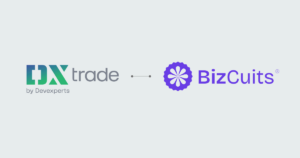The devil is in the details: Always read the small print – Op Ed
“I was lost in the details. And the devil was there. We spoke at length. The small talk was fair” – Grahamacre This is the first part of a two part series (maybe more) looking at the importance of understanding how important choosing the right broker is for a retail investor. Link to part two […]

“I was lost in the details. And the devil was there. We spoke at length. The small talk was fair” – Grahamacre
This is the first part of a two part series (maybe more) looking at the importance of understanding how important choosing the right broker is for a retail investor. Link to part two will be updated here once published.
It’s in the finer details where you either find the devil or god. I’m not a particularly religious man, however; the idiom says it all.
Often as prominent researchers within this industry we receive pleas from traders for help with problematic brokers. Whilst we do our best to provide assistance where ever we can, the culprit is usually a clause in the terms and conditions used to nullify a trade or cancellation of profits.
Whilst anyone reading this that knows us personally can surely appreciate that we are not immune to their pain and suffering having lost monies, we also have to point out the importance of paying attention to the finer details in an agreement between broker and client.
Without mentioning names, anyone in the brokerage business in Australia around 2012 will remember a particularly well known brokerage coming onto the scene in Sydney and using the Product Disclosure Statement of other brokers to point out the market makers and those running an STP book.
At the time the retail world caught onto the phrase and almost cementing the term putting it on the same level as the bubonic plague; it was so evil. Cheeky yet so brilliant.
This had a whole range of industry executives scratching their heads asking how the heck did they just get away with that??!!
The fact is that the details are in the Product Disclosure Statements, the terms and conditions. You can tell a lot about a broker from simply knowing where to look in their legal documents presuming they are in a regulated environment that requires proper disclosure.
What would you be looking for?
We are not against market making as anyone with a deep understanding of how derivatives works will know that without a market maker there is no market.
This is true for futures, options and FX trading among other derivative products.
However; how a market maker conducts business as a market maker can often give insights to how your future trading profitable or not will likely play out.
This can be foreseen with two methods, firstly, peer to peer reviews. Whilst we have written about the flaws in this system, this is still a very quick method used to gauge the reputability of a broker at a glance.
The second method is looking into the clauses that deal with risk management on their client broker agreements when you sign up.
More specifically, any and all sections relating to abusive trading terms and what they (the brokers) are allowed to do if they suspect foul play.
Whilst we are aware of ways the system can be manipulated by toxic flow or clients, many of the tactics are simply not applicable to a retail trader that has near zero experience trading as they simply would not even understand the terms used or strategies used to “cheat the broker out of profits”.
Casual game of roulettes at the casino vs. let’s beat the markets
As casinos have systems and rules in place to prevent cheating or an unfair advantage by punters that try to find weaknesses in the game and capitalize off this leaving the casino out of pocket, so do market makers or B-book brokers that are that way inclined.
Again, this should be stipulated in their agreements and should not be hard to miss.
No one that loves a casino hates it for being a casino. They may not like the fact that they’ve blown some hard earned cash there, but they return often living for the thrill of taking on the “house”.
Many traders I’ve spoken to have often said the markets give them same thrill whilst others are vehemently against the idea of punters having a punt with this mentality.
Again, whilst I avoid making any connection between gambling and trading; a really bad b-book broker makes the comparison very easy to make and in this case the brokers we are trying to avoid.
The questionable clauses
There are many regulated jurisdictions that we can compare, for simplicity and ease of pointing out the facts, we took a look at the Australian regulated environment and look for what clauses are important to pay attention to and what sort of language we look to avoid if there are any indications that the brokers reputation is questionable.
FinanceFeeds organized a mastermind mega consulting session and approached Sophie Gerber, Director at Sophie Grace Pty Ltd, a financial services compliance consultancy based in Sydney, Australia, and to Adv. Tal Itzhak Ron and Aviya Arika from the law firm Tal Ron Drihem & Co. to discuss further.

Is there a way to tell a B-book broker from an A-book broker just by looking at their PDS or terms, and if so, what are the clauses that give it away?
Sophie Gerber: If the PDS is compliant with RG227 this would be discernible to some extent by the section on hedging counterparties. Generally the PDS will explicitly state if all trades are being sent through to a hedging provider, meaning that broker is primarily an “A-book” broker. However if there is no explicit statement that all trades are going to a hedging provider, it should be assumed that the broker is running at least some of its trades as “B-book”.
Tal Ron: This can indeed be tricky. The best chance of recognizing A-book brokers and B-book brokers is to look for certain terms. A-book brokers will usually use ECN or STP models, while B-bookers will usually be market makers. Some brokers’ T&c’s will explicitly state in the “Introduction” or “General” section that they are market makers, meaning they are opposing parties in the transaction, they lose when the client wins and vice versa.
Setting unregulated brokers apart, a regulated broker appears on the regulator’s directories and registries which are usually open to the public, making it easy for one to go online and check what type of license the broker holds and where was it originally registered (before passporting, as applicable to MiFID licenses).
Other disclosing clauses may be related to trade size limits. However, sometimes such understanding will be derived not only from the written financial legalese but from between the lines. When a user understands that A-book/ECN/STP brokers are merely “ticket clippers” and do not take a position against their customers, while B-bookers/market makers usually do, then he may keep in mind these principles and look for “clues” in the t&c’s and risk disclaimers on the broker’s websites.
Whilst we are not against market makers, the bad sorts often include clauses that allow them to cancel certain trades deemed suspicious and/ or cancel any profits from this trades just based on the idea or suspicion that they are somehow trading against the system. For example, trading off market prices. Again, will this be found in the PDS if at all and if yes, which sections would this normally be listed?
Sophie Gerber: Generally this would be in the terms and conditions rather than the PDS.

Aviya Arika: This may be included in clauses with name such as “improper trading”, “abusive trading”, “misconduct”, etc. usually the problem is not that the t&c’s don’t warn from this situation, rather that standard legitimate behaviors are categorized as abusive and used as an excuse to cancel trades.
As most consumers do not read terms and conditions, whether signing up for a broadband plan or opening an account with a broker, what clauses do you as a lawyer strongly recommend that at the minimum traders pay special attention to?
Sophie Gerber: ASIC has recently been looking at the PDSs issued by a variety of brokers and made suggestions on what they consider is important information which must be included in the PDS. This includes:
- Ensuring the PDS aligns with the authorisations included on the entity’s AFSL. ie: if they are not authorised to provide personal advice, no references to the provision of personal advice should be included in the PDS
- Fees – clear and concise disclosure of fees that will be received from the entity should be included to ensure that the consumer understands the fees they may face. This includes the provision of worked examples.
- Hedging counterparties – the hedging counterparties that an entity engages with should be disclosed, including the nature of the relationship with the counterparty.
- these should be specifically disclosed in the PDS, including the name of all counterparties and a description of the nature of relationship with the counterparty. This is a very important thing to look out for and given history of brokerages failing or being involved in significant fraud, consumers should ask and also conduct their own research as to whether hedging/liquidity providers are arm’s length or in some way related to the entity they are opening an account with.
- Where any services are provided from a location outside Australia.
The PDS should also include a section that addresses each of ASIC’s seven benchmarks as outlined in RG227. As a general principle, if you don’t understand something, you shouldn’t sign up for it until it makes sense to you.
Aviya Arika: We suggest traders to always read the introductory clauses of the t&c’s, to pay extra attention to the clauses specifying the circumstances at which the broker is entitled to cancel trades; to clauses presenting the broker’s withdrawals policy; bonuses policies, jurisdiction and arbitration; regulation clauses and to charges and payments clauses. These are the clauses that would affect the trader the most, and the ones that he would most likely hold up against the broker in the case of a conflict.

Does ASIC review / approve a PDS when issuing a license? Are they checked at auditing time? How do we know if this document is relevant and how do we know that a broker has not fiddled with the wording?
Sophie Gerber: ASIC does not review or approve all PDSs which are issued by brokers or any other product providers in Australia. Nor does an auditor necessary review or approve a PDS – in my experience this would be unlikely and in any case it would only be a review for the purposes of audit rather than actual approval.
Does CySec review / approve a PDS or the brokers terms at license issuing and what are their stipulations? How do we know if this document is relevant and how do we know that a broker has not fiddled with the wording?
Aviya Arika: Well there are no magic answers here. From our experience with our clients, companies who take themselves seriously enough to successfully obtain a CySec license will not occupy themselves with this kind of cheating. Furthermore, CySec stays involved during the life span of the company and preforms regular checks and this is a reason for regulated companies to properly stay in line with the regulators’ directives and instructions.
What else can a trader use when looking for a broker to determine if the broker is “Kosher” or not, beside online reviews? In your professional opinion, any other tips that you can give traders looking to avoid having a bad experience with a bad broker in the first instance when first looking?
Sophie Gerber: We suggest looking at ASIC’s MoneySmart website and using the tools which they have made available. https://www.moneysmart.gov.au/investing/complex-investments/contracts-for-difference. Follow their advice about questions to ask brokers before opening an account, particularly the RG227 disclosure points.
Also conduct searches on ASIC’s website for any warnings or notices which have been issued about the company.
What else can a trader use when looking for a new Cyprus broker to determine if the broker is “kosher” or not, besides online reviews? In your professional opinion, any other tips that you can give traders looking to avoid having a bad experience with a Cyprus broker in the first instance when first looking for a broker?
Tal Ron: First of all, we would recommend to go on several websites offering reviews and to cross-check the broker in each one of them. Another efficient precaution is to go on CySec’s directory and check the regulatory history of the broker. A clean history always adds “serenity points”









